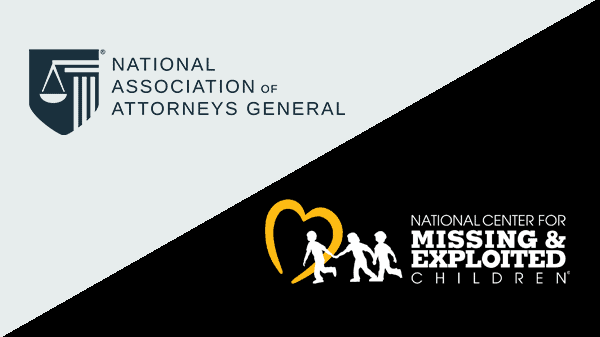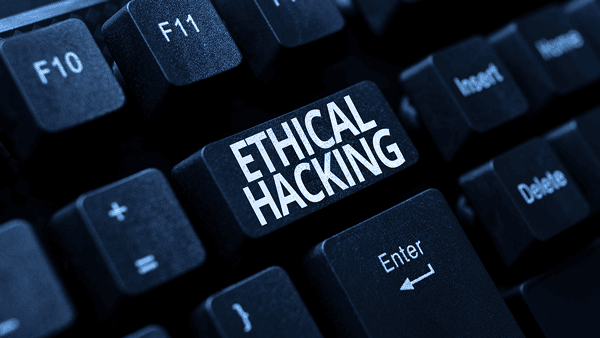Amie Ely, director of NAGTRI’s Center for Ethics and Public Integrity and NAGTRI program counsel, contributed significant information for this article.
What is the prosecutor’s duty under the obligations announced in the U.S. Supreme Court cases of Brady v. Maryland 1 and Giglio v. United States?2 I am sure that every experienced prosecutor can give an acceptable answer to that question. Basically, there must be a timely disclosure to the defendant of favorable, material information3 that is known to the government, such as information that could negate guilt or affect punishment.4 Giglio extends Brady to include the responsibility to disclose information that could impeach a witness, typically a law enforcement officer or an informant.5 The Court has made it clear that these are due process rules that are constitutionally mandated. Although the requirement for Brady disclosures is somewhat settled,6 questions concerning the reach of Giglio remain.7
In United States v. Agurs,8 the Court expanded its early Giglio ruling torequire prosecutors to turn over possible impeachment information even if there has been no request by the defendant. Nearly 20 years later, in Kyles v. Whitley,9 the Court mandated an affirmative duty on the part of the prosecutor to search whether there is any favorable evidence known to others that could be used to assist a defendant. Although the Kyles decision was based on a Brady consideration, it also implicates the prosecutor’s duty under Giglio so as to require that the prosecutor proactively determine what evidence police and other government agencies might have that would require giving potentially favorable information to the defendant. Knowledge within a law enforcement agency that would include Brady/Giglio information can be imputed to the prosecutor.
Articles appearing in Law and Order note that, with prosecutors’ obligations under Brady/Giglio, it is incumbent on police organizations to affirmatively divulge to prosecutors’ offices information regarding crimes committed by officers, examples of dishonesty, and information that would tend to demonstrate bias toward the defendant.10 In 1996, the U.S. Department of Justice (DOJ) issued its Giglio policy for federal agencies. In 2010, DOJ issued another memorandum that gives guidance to federal prosecutors on how to gather, review, and disclose discoverable information, including exculpatory and impeachment evidence.11
Unfortunately, states have been slower to provide guidance to their prosecutors and law enforcement agencies.12 In 2004, then New Hampshire Attorney General Peter Heed issued a memorandum regarding Giglio and the placing of police officers on a so-called “Laurie list,” a list of police officers whose credibility has been questioned, that was to be maintained by county attorneys. Shortly before leaving office in March, New Hampshire Attorney General Joseph Foster updated that memorandum.13
Beyond this complication, there are the ethical obligations of Rule 3.8(d). According to many commentators, the Supreme Court’s Kyles decision,14 and an American Bar Association (ABA) ethics opinion,15 the ethical obligations of prosecutors go beyond the constitutional requirements of Brady/Giglio.16 For instance, an ethics opinion from the Virginia Bar states that “Rule 3.8(d) does not refer to or incorporate . . . the Brady standard for disclosure.”17 According to that opinion, there are three primary differences between Brady/Giglio and Virginia’s Rule 3.8(d). In the Rule, there is no reference to “material” evidence but, instead, the Rule applies to all evidence that is exculpatory or could affect a sentence.18 The second difference is that the Rule does not impute knowledge to the prosecutor.19 Finally, the Rule requires earlier disclosure than Brady requires. According to the Virginia ethics opinion, a prosecutor must make “timely disclosure,” defined as one “that is made as soon as practicable considering all the facts and circumstances of the case.”20 The ABA opinion explicitly states that this disclosure of exculpatory information must be made before a guilty plea proceeding.21
Where does all this leave the responsible and ethical prosecutor, especially when task force investigations and prosecutions are involved? Task force investigations and prosecutions present special problems in regard to a Brady/Giglio obligation because the number of people involved in a task force may expand the members of the prosecution team, especially in regard to joint federal/state task forces. Prosecutors should ask at least the following questions: Were any other offices involved in strategy sessions or targeting discussions? Was any information received from another agency (including a regulatory agency) that was pertinent to the investigation? Was any other agency involved in making decisions regarding charges?22
Certainly, both state and federal prosecutors and offices must keep abreast of development in courts regarding what earlier activity and statements of witnesses must be reported – and when – under their Giglio obligations, particularly in view of the seeming trend to expand the disclosure obligations of prosecutors. They must also stay clearly informed on what decisions the jurisdictions in which they are barred have made concerning the extent of Rule 3.8(d). There would be little satisfaction in winning a conviction only to be brought up on ethics charges or to have a conviction overturned by an appellate court because timely disclosure was not made.
Endnotes
- 373 U.S. 83 (1963).
- 405 U.S. 150 (1972).
- Under United States v. Bagley, 473 U.S. 667 (1985), evidence is “material” if there is a “reasonable probability” that disclosing it to the defense would have changed the result of the proceeding, and this “reasonable probability” of a different result is met when the prosecutor’s evidentiary suppression “undermines confidence in the outcome of the trial.”.
- See, e.g., Kyles v. Whitley, 514 U.S. 419, 432 (1995).
- In Bagley, supra note 4, at 682, the Court chose to focus more on the likely effect of the non-disclosed evidence on the outcome of the defendant’s trial instead of on whether the withheld information exculpated or impeached.
- Questions remain, however, as to the timing of the disclosures. The Court held in United States v. Ruiz, 536 U.S. 622 (2002), that the Constitution does not require that possible impeachment information be provided prior to plea bargaining. Failure to so disclose, however, could well be a violation of Rule 3.8(d).
- See, e.g., Pam McDonald and Randy Means series of articles in Law and Order, March, April, May, & June 2016, http://www.hendonpub.com/resources/article_archive/results?k=giglio. These articles demonstrate that the materiality of instances in which a police officer might have lied (saying, for instance, that he was late for work because his car broke down instead of admitting he had overslept as opposed to lying on an official police report) can cause law enforcement departments problems when trying to decide what should be reported to prosecutors. Another issue is whether Giglio information as to investigating officers who are not testifying but may, for instance, have signed an affidavit for a search warrant, must be disclosed.
- 427 U.S. 97 (1976).
- 514 U.S. 419 (1995) (holding that the prosecutor should have disclosed possible impeachment evidence that the defense could have used in cross examining eye witnesses).
- Pam McDonald and Randy Means, Brady/Giglio Disclosure Requirements, Law and Order, March 2016, http://www.hendonpub.com/resources/article_archive/results/details?id=5684.
- David W. Ogden, Guidance for Prosecutors Regarding Criminal Discovery (Ogden Memo), Jan. 4, 2010, https://www.justice.gov/archives/dag/memorandum-department-prosecutors.
- In 2014, the District Attorney in Kansas’ Eighteenth Judicial District issued a 15-page memorandum on Brady/Giglio requirements. See Marc Bennet, “Brady/Giglio Policy” of the District Attorney (Aug. 2014), https://media.ksn.com/nxs-ksnwtv-media-us-east-1/document_dev/2018/06/07/bradygigliopolicy-aug-2014_1528398850062_44776359_ver1.0.pdf.
- Law Enforcement Memorandum (March 21, 2017), https://www.doj.nh.gov/criminal/documents/exculpatory-evidence-20170321.pdf.
- Kyles v. Whitley, 514 U.S. 419, 437 (1995).
- ABA Standing Committee on Ethics & Prof’l Responsibility, Formal Op. 09-45409-454 (July 8, 2009), http://www.americanbar.org/content/dam/aba/events/professional_responsibility/2015/May/Conference/Materials/aba_formal_opnion_09_454.authcheckdam.pdf.
- It appears that the majority of states have adopted the Model Rules, although variations obviously exist. ABA, State Adoption of Model Rules of Professional Responsibility, http://www.americanbar.org/groups/professional_responsibility/publications/model_rules_of_professional_conduct/alpha_list_state_adopting_model_rules.html.
- Virginia Legal Ethics Op. 1862 (July 23, 2012), at 1, https://www.vsb.org/docs/LEO/1862.pdf.
- See, e.g., In re Disciplinary Action Against Feland, 820 N.W.2d 672, 678 (N.D. 2012). “We therefore conclude that a prosecutor’s ethical obligation to disclose evidence under Rule 3.8(d) is broader than the duty under Brady.” But see Disciplinary Counsel v. Kellogg-Martin, 124 Ohio St 3d 415, 419 (Ohio 2010). “We decline to construe DR 7-103(B) as requiring a greater scope of disclosure than Brady and Crim. R. 16.”.
- Virginia Legal Ethics Op. 1862, supra note 16.
- Id. at 2.
- ABA Standing Committee on Ethics & Prof’l Responsibility, Formal Op. 09-454 (July 8, 2009), at 6, http://www.americanbar.org/content/dam/aba/events/professional_responsibility/2015/May/Conference/Materials/aba_formal_opnion_09_454.authcheckdam.pdf.
- The Ogden Memo factors include whether the investigation was joint or resources were shared, the role of the agency, whether the prosecutor knows of and has access to discoverable information the agency holds, whether the prosecutor shared information with the agency, whether a member of the agency has been made a special assistant attorney general or given some other similar title, and the degree to which interests of the prosecutor and the agency’s interest diverge.





